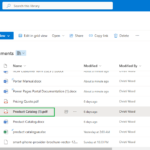Introduction
Hospital Management System (HMS) utilizes the experience of users, making it easy to ensure healthcare facilities for patients and healthcare providers. HMS is design for integrate programs and covers all accessibility of reducing factors and provides features like dashboards, appointment schedules, and navigation between patients and healthcare providers, reducing the efficiency of workflows. In place of hospital management users need to analyze the system of related staff, doctors, and patients which play a big role in improving healthcare and the management system of healthcare. The different types of features HMS provides reduce efficiency and make it easy to manage all hospitals. Features of HMS are Electronic Medical Records (EMR), appointment schedules, billing and payment management, and optimizing data of patients. That’s why HMS plays an important role in healthcare.
Overview Of Hospital Management System
A Hospital Management System (HMS) is design to consider modular facilities like patient data records, appointment schedules, billing processes, and security to protect the information of patients. Even though the advantages and challenges include initial realization costs, connectivity issues, and the need for healthcare professionals to learn the new technologies. Looking forward to the future of hmis software companies in india involves linked health systems, increased patient engagement, and the merging of artificial intelligence for advanced data analysis and decision support. The management of documents is use to apply to equipment and reduce the wastage of medical variants. Overall, HMS improves patient health, minimizes unethical data, and makes software tools for better healthcare treatment.
What Is a Hospital Management System?
Hospital Management System (HMS) is a software of the medical department. That is design to solve and make it easy to process healthcare management systems and that aim is to reduce efficiency to improve patients’ health. There are some key features of the health management information system like patient management of health, appointment schedule, analyzing treatment of patients, and digitizing all processes.
The management of the automatic process of billing, appointment schedules, and minimized storage to reduce wastages are perform as various roles to generate and optimize the system of platform services. Hospitals use digital software that is a hospital information management system designed to improve patient care, fetch and update medical records, arrange automatic appointment schedules, and integrate data of patients. The best part of the Hospital Management System is the secure data system.
In this system only authorized persons can be allowed to access data outsiders or other medical staff can not consider. The data of patients that play an important role in making an easier healthcare management system.
The system can create and maintain services as well as before because the entire design of HMS is made to proceed with an automatic data management system. Overall, the hospital management system was built for easy-to-proceed patient health and improve earlier health which is a motive of HMS.
Reason For Hospital Management System Is Important In Healthcare?
Hospital Management Systems (HMS) have many reasons to improve healthcare like efficiency to make tasks easier such as scheduling appointments. The billing process and payment chain are focuse on digital healthcare rather than paperwork. It helps to maintain a patient’s medical record and history of data. That leads to a better decision to consider automatic reduction error. Maintain features of Health Insurance Probability to avoid. Take legal issues if they have any compliance then HIPAA can consider the request related to medical.
HMS can analyze data of any amount and identify the request according to healthcare. That enhances the experience of patients and allows them to communicate with healthcare providers. In case patients are in emergencies then the hospital management system can provide in-time ambulance facilities to ensure patients and quickly consider medical facilities.
HMS offers a better patient improvement process with medication and health enabling early healthcare management systems administrators to work quickly to reduce wait time and contribute to delivering the best medical care.
Hospital Management System ensures a practice for maintaining the security system. It captures the events and activities of a system. It provides online electronic medical records that can identify security incidents and ensure compliance regularly. Hospital Information Management Systems establish logging policies that define specific events and activities that should be logged. That could include login attempts, changes, and access to sensitive data related to event security. That ensures health management and information system and adjusts logging settings to capture relevant information. Centralized log management and automated log analysis manage possible solutions. This can allow centralized log management of large volumes of log data.
Conclusion
In summary, hospital management systems (HMS) are essential components of contemporary healthcare. Providing a host of advantages ranging from improved patient care and safety to improved efficiency in administration. HMS promotes an operational excellence mindset in healthcare organizations by simplifying procedures, allocating resources optimally, and guaranteeing regulatory compliance. Moreover, health information systems support informed decision-making, individualized care delivery, and ongoing quality enhancement through interoperability, data analytics, and remote surveillance features. HMS is still in a position to develop and change as technology develops further. Advancing patient outcomes, organizational efficacy, and healthcare delivery.









